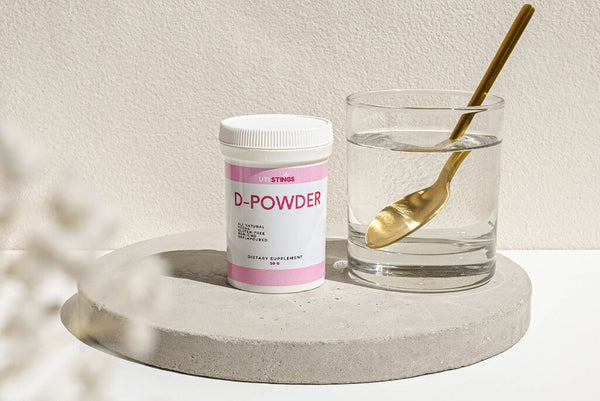Everything you need to know about Urinary Tract Infections (UTI)

We know the right information can be hard to find so we’ve combined scientific research with over a decade of personal experience for you.
What is a UTI?
A urinary tract infection (UTI) is an infection caused by microbes such as bacteria that cause inflammation and infection in any part of your urinary system. Commonly in the bladder, ureters, and urethra but if left untreated, the bacteria can climb to the kidneys and this becomes life-threatening.
90% of UTIs are caused by a bacteria called Escherichia coli (E. coli) which is commonly found in the gastrointestinal tract. Other bacteria inlcudes Klebsiella species, Proteus species, Pseudomonas aeruginosa, and Enterococcus species.
How many people have been affected by UTI?
UTI is a very common affecting 150 million people per year globally and about a quarter of those patients develop another infection within six months. UTI also affects the vast elderly population but they experience less symptoms.
UTIs affect 1 in 2 Australian women and 1 in 20 men in their life-time, currently resulting in more than 2.5 million GP appointments, 100,000 emergency department visits and 75,000 hospital stays each year.
What are the signs and symptoms?
What is a UTI Flare?
A flare is an increase of UTI symptoms such as bladder inflammation, pelvic pain, frequency, blood in the urine, lower back and abdominal pain, fever, tiredness and nausea. You could also notice a change in mood making you more irritable, emotional or distressed.
It is usually caused by bacteria releasing into the urine and significantly increasing symptoms of pain, frequency and urgency. The pain often extends beyond the bladder itself into the vagina, pelvic floor and abdomen.
Unfortunately flares are common and can happen at any time including when you are taking antibiotics to manage a UTI. Some people flare after eating certain foods/ drinks or after intimacy.
What are common triggers of UTI?
People of any age can develop a UTI. However, some people are more at risk than others. The following factors can increase the likelihood of developing a UTI:
- sexual intercourse, especially if more intense, and with multiple or new partners
- poor personal hygiene
- problems emptying the bladder completely
- having a urinary catheter
- bowel incontinence
- blocked flow of urine. eg. kidney stones or enlarged prostate gland for men.
- some forms of contraception
- pregnancy
- potty training
- hormonal changes eg. menopause
- procedures involving the urinary tract
- suppressed immune system. eg Diabetes
- use of spermicides and tampons
- heavy use of antibiotics, which can disrupt the natural flora of the bowel and urinary tract
- Extreme stress
- When bacteria hiding in the bladder lining releases into the urine
- Bacterial vaginosis (BV)
- Spinal cord injury
How to manage a UTI flare
- Always consult a doctor and do a urine test before taking antibiotics.
- Drink lots of water to flush out bacteria
- Make yourself as comfortable as possible with comfy loose clothing and heat pack or cold pack.
- Try anti-inflammatory such as curcumin or antihistamines to calm the nerves in your bladder.
- Try not to panic as your pelvic floor will tense up and make symptoms worse.
- Try natural supplements such as D-mannose with water to help clear the bacteria and calm the bladder.
Should I do a urine test?
Yes, absolutely necessary to determine what bacteria is present and which antibiotics will be most effective. You could have more than 1 bacteria which means you might need 2 different types of antibiotics.
HELPFUL HINTS:
- Best to catch a sample first thing in the morning (mid-stream)
- Dont drink tonnes of water before the urine test as it will dilute the sample and affect results.
- It's a good idea to get a second urine test done 3-7 days after your antibiotics to check for any lingering bacteria.
Why do I get flares at night?
Many people experience sudden UTI flares in the middle of the night which is common because acidity levels in the bladder increase while you’re sleeping. Bacteria such as E.coli multiply faster in acidic environments. If this happens try to see a doctor first thing in the morning or if your in Australia and have medicare, call ‘13 SICK’ and a doctor will come within 3 hours.
What is a recurring UTI?
If you experience 4 or more UTIs per year than you have recurring UTIs
How to treat and manage recurring UTI
-
You GP will suggest diagnostic tests such as an ultrasound, CT scan, cystoscopy or urine tests.
-
UTIs are typically associated with intimacy, your doctor may prescribe antibiotics to take after intercourse to prevent recurring infection.
-
Try natural remedies as a preventative measure such as dandelion, oregano oil and D-mannose powder before/after intimacy and use coconut oil as lubricant as it has antimicrobial properties.
-
For post-menopausal women, estrogen-based vaginal creams can help alleviate hormonal changes and vaginal dryness that can lead to frequent UTIs
-
Vitamin C with Hipprex to acidify urine and help kill bacteria. Some people with IC experience discomfort or pain when taking Hipprex as it makes the urine more acidic.
-
If Hipprex doesn’t work for you then you can go the other direction and make your urine more alkaline so there is less chance of E.coli growth. Uva ursi (bearberry leaf) has antiseptic properties that can make your urine alkaline and prevent bacteria from growing. (This is not a long-term solution)
-
Book with a urologist and do a cystoscope and ultrasound.
-
If you have any gut issues consult a nutritionist to find out if your diet is affecting your bladder health.
-
Book a physiotherapist to check your pelvic floor is functioning as it should be.
-
There are other procedures available such as botox or ialuril Discuss these options with your urologist or GP.
-
Recurring UTI is likely to affect your mental health, if you need to speak to a counsellor visit: https://www.betterhelp.com/
-
If there is any blood in urine, see a medical expert immediately
What is the difference between 'acute UTI' and 'chronic UTI' ?
- Acute UTI is when harmful pathogens or bacteria is detected in the urine and causes bladder inflammation. This can be extremely painful as there are many nerves involved. Luckily this can be treated with antibiotics, however a urine test is necessary to see what antibiotics are the most effective. If an acute UTI is not treated properly this can often develop into a chronic UTI.
- Chronic UTI which is also known as ‘embedded’ UTI is when the bacteria penetrates and hides inside the cells of the bladder lining. When the bladder lining sheds the bacteria is released into the urine and this can cause a flare. Recurring chronic UTI is very difficult to detect and therefore harder to treat
More information on chronic UTI
Further research and information is available at the below links.



